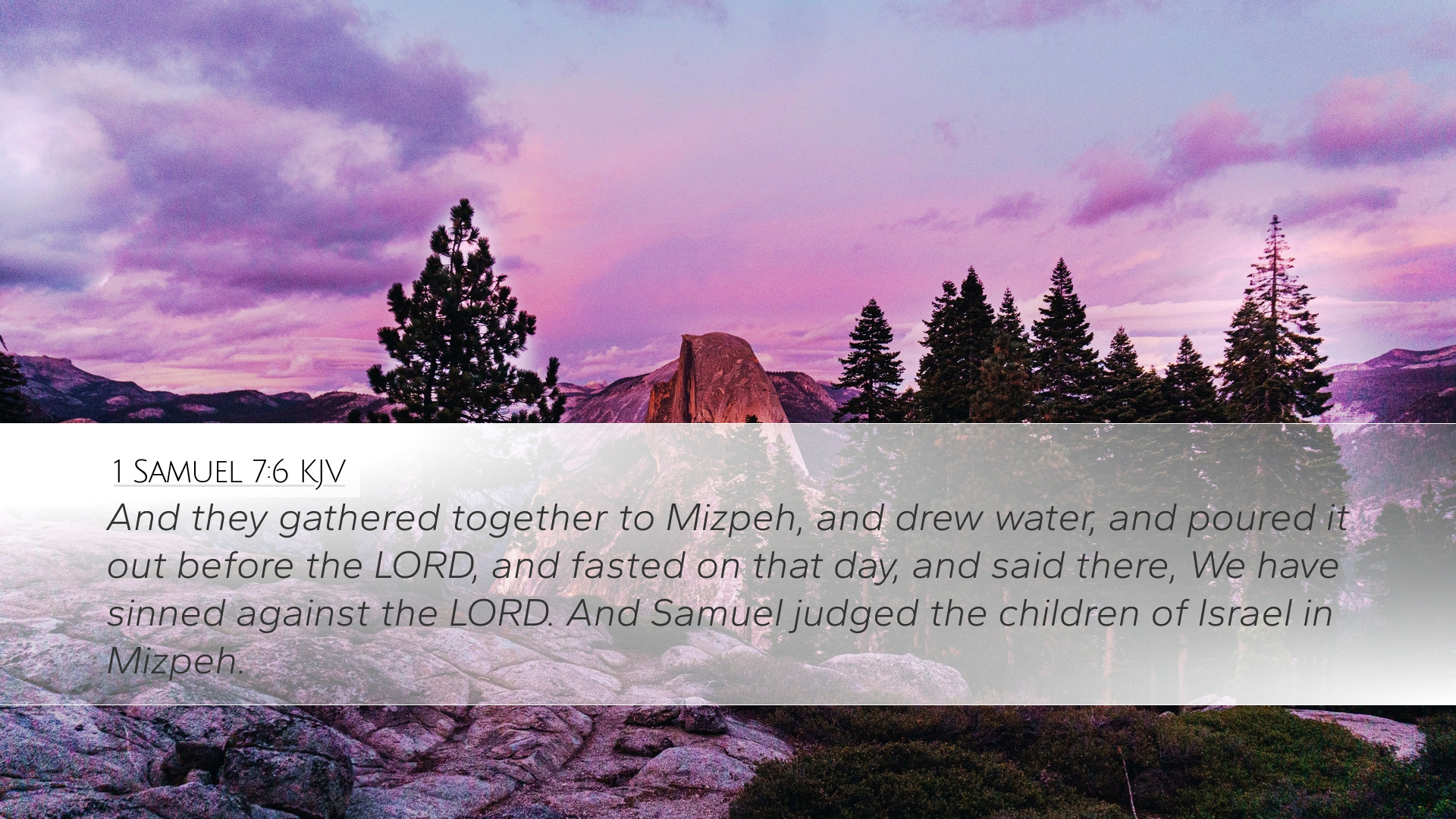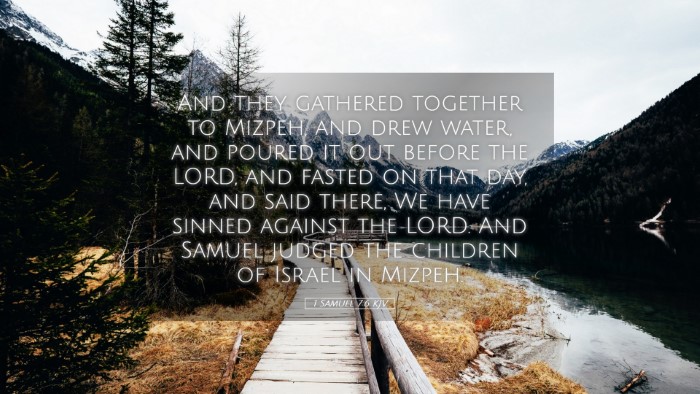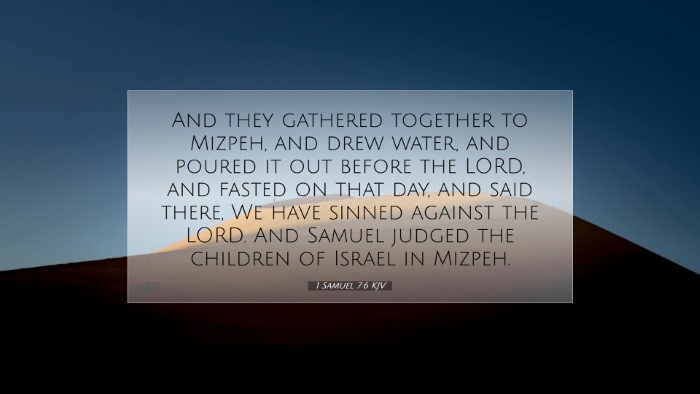Commentary on 1 Samuel 7:6
Verse: "And they gathered together to Mizpeh, and drew water, and poured it out before the Lord, and fasted on that day, and said there, We have sinned against the Lord. And Samuel judged the children of Israel in Mizpeh."
Introduction
This significant moment in Israel's history reveals a deep spiritual turning point for the nation. As they gather at Mizpeh, the people exhibit humility and penitence before God. The actions that unfold serve as a demonstration of their earnest return to the covenant relationship with the Lord. This commentary integrates insights from various public domain sources to enrich understanding of this important passage.
The Context of 1 Samuel 7
The context surrounding 1 Samuel 7 is vital to understanding its meaning. Israel had faced years of oppression from the Philistines, and the atmosphere was one of desperation and spiritual decline. The people had turned away from God, leading to severe consequences. However, the prophet Samuel emerges as a leader who calls for repentance and rallying toward God.
Gathering at Mizpeh
The gathering of the people at Mizpeh, a site of significance as a place of worship and communal meetings, symbolizes unity in a time of crisis. Here, they come together to express their contrition and seek divine favor.
- Matthew Henry: Describes Mizpeh as a choice place for solemn assemblies where the children of Israel often gathered for prayer and fasting.
- Albert Barnes: Points out that Mizpeh was not only a geographical location but also a spiritual haven where they could remember their roots and restore their covenant.
The Act of Pouring Water
The act of pouring out water before the Lord is rich in symbolism. It reflects the hearts of the people pouring out their sorrow and guilt before God.
- Adam Clarke: Suggests that this act was reflective of their acknowledgment of spiritual thirst and need for cleansing.
- Matthew Henry: Points to this as an expression of their confession and a manifestation of the seriousness of their sin, much like the act of pouring out one's heart.
Fasting as a Sign of Repentance
The people also engaged in fasting that day, a significant spiritual discipline indicating their earnest desire to seek God fervently.
- Albert Barnes: Notes that fasting during this time was a communal act of repentance, illustrating their collective struggle against sin and their need for divine intervention.
- Matthew Henry: Emphasizes that true fasting leads to sincere prayer, which invites God's mercy upon a humble heart seeking restoration.
Confession of Sin
In their confession, they boldly state, “We have sinned against the Lord.” This admission is crucial as it marks the moment of their return to God.
- Adam Clarke: Points to the importance of acknowledging one's sin—this confession prompts divine response and reconciliation.
- Matthew Henry: Stressing that the acknowledgment of sin is the first step towards healing and restoration in their relationship with God.
The Role of Samuel
Samuel plays a pivotal role as the judge and mediator in this passage. His leadership is a reflection of divine authority and guidance over the nation of Israel.
- Albert Barnes: Describes Samuel as a conduit through which God’s message and will were communicated to His people, emphasizing the necessity of godly leadership.
- Matthew Henry: Highlights Samuel's dual role as both judge and prophet, guiding Israel back to a right standing with the Lord through obedience and worship.
Theological Implications
The actions and attitudes displayed in this verse illustrate several key theological themes:
- The Necessity of Repentance: The passage emphasizes that genuine repentance involves both sorrow for sin and a turn toward God.
- Communal Worship: The gathering signifies the importance of collective acknowledgment of sin and corporate worship in the life of the believer.
- God's Faithfulness: The narrative demonstrates that despite their failures, God remains faithful to restore those who sincerely seek Him.
Conclusion
In reflecting on 1 Samuel 7:6, we find a rich tapestry of repentance, communal worship, and divine mercy at work within the lives of the Israelites. The significance of this event extends beyond historical narrative; it is a timeless reminder of the human condition and our continual need for repentance and renewal in our relationship with God. Pastors, students, theologians, and biblical scholars alike can draw not only from the historical context of this event but also from its profound implications for contemporary faith practice.


